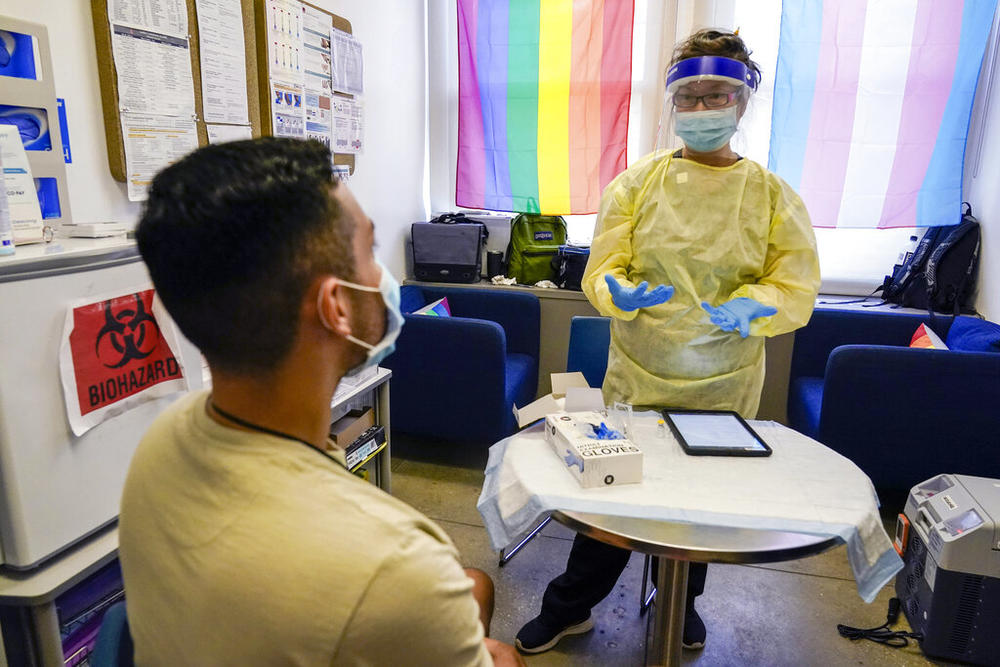
Caption
Physician assistant Susan Eng-Na, right, goes over the possible side effects with a patient before administering a monkeypox vaccine during a vaccination clinic at the OASIS Wellness Center, Friday, Aug. 19, 2022, in New York.
Credit: AP Photo/Mary Altaffer


